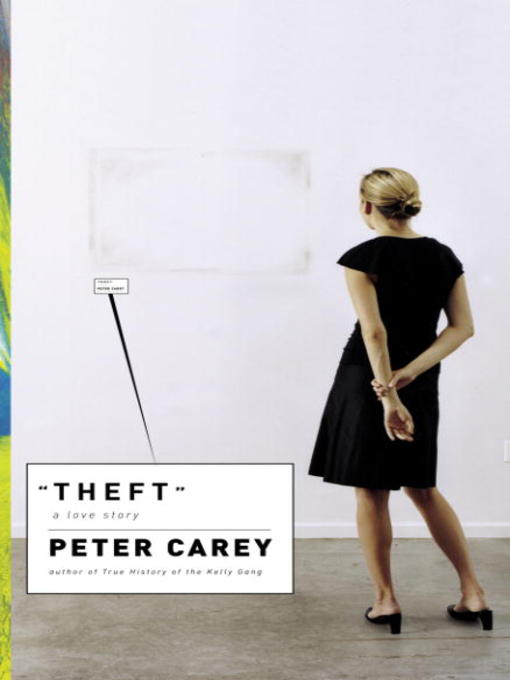
Theft
A Love Story
کتاب های مرتبط
- اطلاعات
- نقد و بررسی
- دیدگاه کاربران
نقد و بررسی

Starred review from March 20, 2006
Two-time Booker-winner Carey (Oscar and Lucinda
and True History of the Kelly Gang
) returns with a magnificent high-stakes art heist wrapped around a fraternal saga. Butcher Boone is an all-id all-the-time Australian painter of enormous talent and renown. Now divorced and bankrupted by his former wife, who tired of his excesses, Butcher has been reduced to caretaking a remote estate for his largest collector. And since the deaths of his working-class parents, he has also been saddled with his beloved, bedeviling brother, Hugh, who, like Butcher, has a primarily pugilistic relationship with the world. One rain-flooded night, a chic young woman knocks on their door, having lost her way. She is Marlene, wife of Olivier Leibovitz, son and heir to an early 20th-century master. Soon the brothers are embroiled in an international crime investigation that eventually comprises forgery, vast sums of money and murder. None of this, however, distracts Butcher from his overpowering love affair with Marlene, which threatens to leave Hugh stranded in an unforgiving world. Scenes in Australia, Japan and New York feature unique forms of fleecing, but setting and action are icing on the emotional core of Carey's newest masterwork. 75,000 announced first printing.

Starred review from May 1, 2006
Michael Boone, a.k.a. Butcher Bones, is a formerly famous Australian painter of working-class background who has lost all of his art in an acrimonious divorce and now finds himself broke and exiled to a patron -s house in the outback. There, he tries to begin painting again while taking care of Hugh, his psychologically damaged brother and alter ego. Into this already tumultuous world stumbles the bright, beautiful, and amoral Marlene, a similarly self-made art authenticator with a tie to the estate of a famous painter. The two begin a love affair that helps Boone restart his career while at the same drawing him ever deeper into the more nefarious aspects of the art world. Theft is the overarching metaphor of the novel, covering everything from aspects of the artistic process, to the relationship between artists and collectors, to the art world generally, and it -s a metaphor that Carey ("Oscar and Lucinda") likely intends to extend into the world at large. Sharply observed, well written, and acerbically witty, this book will only further Carey -s reputation. Recommended for all public libraries." -Lawrence Rungren, Merrimack Valley Lib. Consortium, Andover, MA"
Copyright 2006 Library Journal, LLC Used with permission.

Starred review from March 15, 2006
Twice a Booker Prize winner, Carey creates a whole new world in each novel, and nearly a new language, so fresh and transfixing are the voices of his narrators. And yet he has his signal preoccupations, primary among them a fascination with the demonic side of creativity and questions of authenticity and fakery, concerns that come to the fore in this barbed, intriguing art caper. Michael Boone, known in his small Australian hometown of Bacchus Marsh as Butcher in acknowledgment of his father's trade, surpassed expectations and became a famous painter until he landed in prison. Just out, he's working feverishly, determined not to be distracted by Hugh, his somewhat frightening brother, or sexy, enigmatic Marlene. Hugh--a big, blustering, bumbling, and passionate fellow not quite right in the head yet plenty intelligent in his own way (he and Butcher alternate as narrators)--is his brother's albatross, and, perhaps, saving grace. Marlene turns out to be a cutthroat mastermind who gets the three of them into all kinds of complicated trouble. Carey is at his satirical best as he mocks the venality of the international art market, and at his most tender in his spirited portrayal of daring misfits who fled the confines of working-class life "half mad with joy" once they discovered the transformative power of art.(Reprinted with permission of Booklist, copyright 2006, American Library Association.)

























دیدگاه کاربران